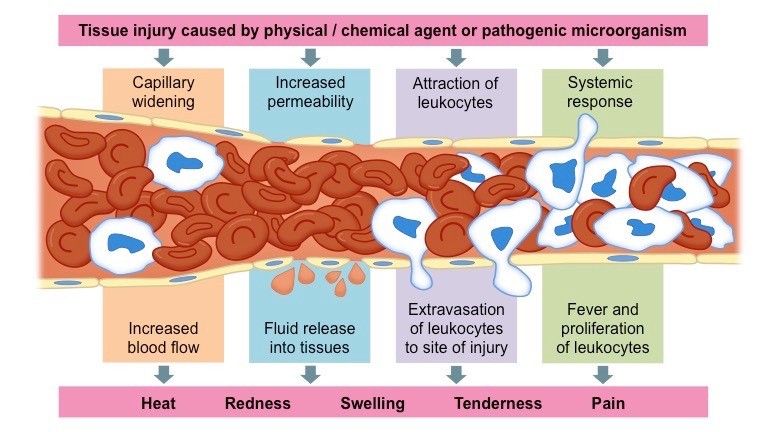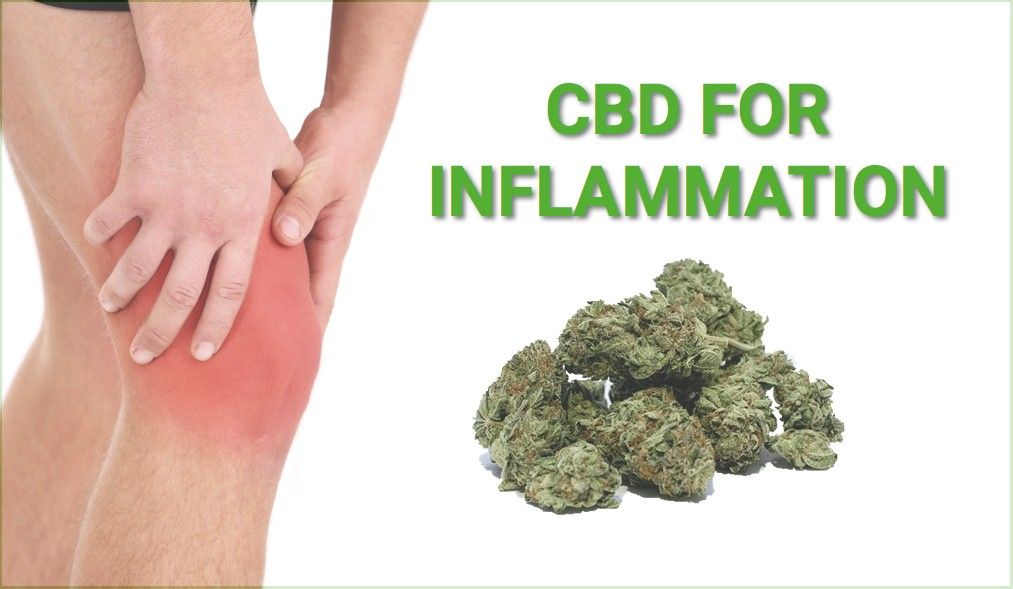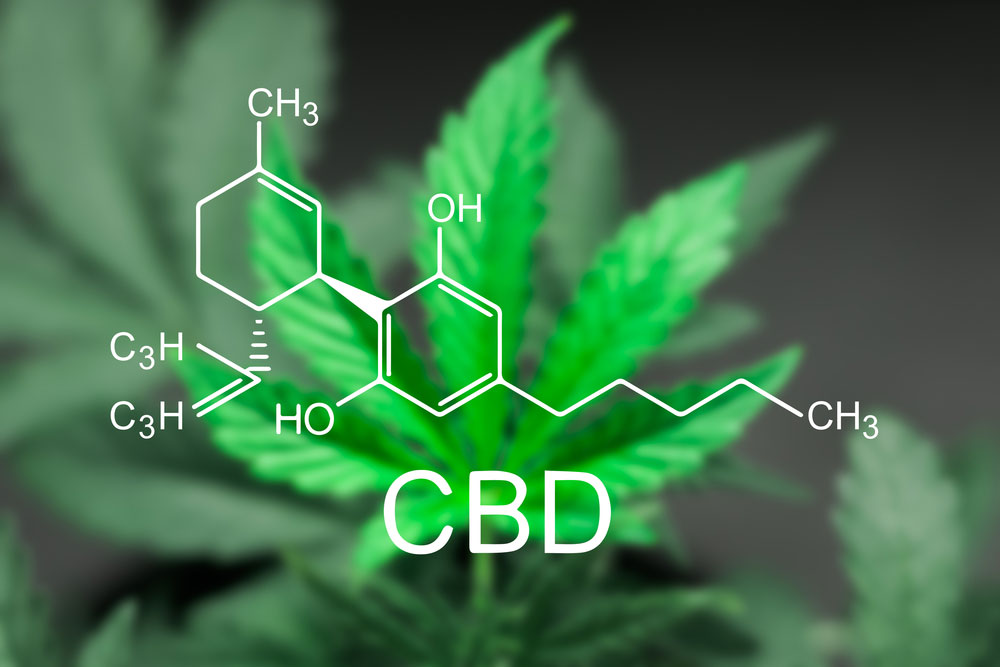How many times do we have to hear, “More Research is Needed”, from those who would prefer to see no change in policies that should be informed by science? From climate change to cannabis prohibition, the demand for absolute scientific certainty is a call for inaction…
The question is: “When is there ‘enough’ research to recommend medical treatment or change policy”?
Anti-inflammatory medications should not be used for more than a few days, yet doctors are prescribing increasing amounts of addictive opioid medicines. In Australia, scripts for these drugs rose by 30% between 2009 and 2014 and the rate of opioid-induced deaths has almost doubled in 10 years. Cannabinoids and endo-cannabinoids are a hot topic in the fields of chemical and biomedical research with more than 1000 articles being published each year, and the trend is for that to increase.
The good news is that there is now sufficient scientific research evidence proving CBD Oil is a natural, therapeutic alternative to mainstream treatments for all types of inflammation.
Inflammation is a natural reaction to injury or infection. The affected tissues swell, redden, become warm and tender, and may be painful. Proteins called cytokines attack the threatening germ and repair damaged tissues. Too much inflammation can do the body harm, however, leading to immobility, weight loss, and eroding of muscle tissue and the power to fight disease. Disorders that involve specific types and/or locations of inflammation include bursitis, carpal tunnel syndrome, fibromyalgia, osteoarthritis, and tendinitis, just to name a few. Cardiovascular disease also may be at least partially a result of inflammation in the linings of the arteries. Things that can trigger inflammation include a diet rich in omega-6 fatty acids, drug overuse, exposure to environmental toxins, free radical damage, infections, injury, trauma, and bacterial, fungal, or viral infection.

The inflammatory response (inflammation) occurs when tissues are injured by bacteria, trauma, toxins, heat, or any other cause. The damaged cells release chemical s including histamine, bradykinin, and prostaglandins. These chemicals cause blood vessels to leak fluid into the tissues causing swelling.
Any organ or tissue of the body, internal or external, can become inflamed. Internal inflammation is often caused by bacterial infections, but can also be caused by disorders such as allergies, anemia, arthritis, asthma, autoimmune diseases, Crohn’s disease, osteoarthritis, peptic ulcer disease, or ulcerative colitis.
External inflammation is most often the result of injury, but can also result from (or be aggravated by) allergies, infection, and other factors. Unfortunately, it is often difficult to identify the source or sources of inflammation.
CBD Oil, otherwise known as cannabidiol, is known as the primary medical powerhouse compound found in cannabis and hemp. It is the main cause of the pain-relief and anti-inflammatory properties that medical marijuana is known for. This is probably why there is so much anecdotal evidence involving people suffering from inflammation about the relief they feel after using a CBD-infused product. Many of them have never felt the same type of ease and relief that they feel with CBD, in comparison with any other type of treatment.
Considerations
Heart disease used to be associated only with an increase in cholesterol levels. Now it is thought to be related to inflammation, as evidence by increases in homocysteine and C-reactive protein levels in many patients; these are markers of inflammation. Also, obesity causes an increase in blood cytokine levels, indicated that it too is causing increased inflammation in the body. Obese children as young as two and three years old have elevated cytokine levels. Bacterial arthritis, which causes painful inflammation of the joints, is usually associated with an infection elsewhere in the body, such as in the lungs, kidneys, or gallbladder.
The traditional methods for relieving inflammation are positioning the affected part properly (including splinting, if necessary), applying heat and/or ice (heat and cold therapies), taking painkillers along with nutritional supplements, and getting plenty of rest. Non-steroidal anti-inflammatory drugs (NSAIDs) are prescribed to 33 million people a year for chronic inflammation. However, NSAIDs increase the risk of stomach pain, intestinal bleeding, heart problems, and kidney failure.
CBD Oil and Inflammation
It is obvious that most pervasive chronic conditions share a common feature in terms of their underlying cause. Whether it be coronary artery disease, hypertension, diabetes, depression, rheumatoid arthritis, or even Alzheimer’s disease, what current medical studies reveal is the powerful role that inflammation plays in these, and other common conditions.
Ultimately, the main issue with high levels of inflammation that manifests as damage to tissue, is the fact that when inflammation has been “switched on”, it increases the production of damaging free radicals, a situation known as oxidative stress. When oxidative stress is running rampant, damage occurs to our proteins, our body fat, and even our DNA.

Over the years there has been extensive research investigating how increasing the availability of anti-oxidants might help to protect our bodies against these damaging free radicals. Emerging research now demonstrates that cannabidiol has significant potential in terms of limiting inflammation as well as decreasing damaging free radicals.
Research published in Free Radical Biology and Medicine, scientists described not only the complexities and challenges posed by trying to specifically target oxidative stress in a variety of disease states, but also the potential benefits of using CBD oil to accomplish this goal. (Unlike THC, the chemical in marijuana responsible for the “high”, CBD is a non-psychotropic derivative of the plant).
This research demonstrated that CBD has wide ranging activity in terms of reducing inflammation and the damaging effects of free radicals. Specifically, CBD modulates the function of the immune system, indicating the effects of this modulation to be extremely positive. In the conclusion of the research publication, the authors stated: “Inflammation and oxidative stress are intimately involved in the genesis of many human diseases. Unravelling that relationship therapeutically has proven challenging, in part because inflammation and oxidative stress “feed off” each other. However, CBD would seem to be a promising starting point for further drug development given its anti-oxidant and anti-inflammatory actions on immune cells”.

What is Inflammation?
Although often vilified and considered negative, inflammation is actually a vital physiological process and a fundamental aspect of the body’s innate immune response. However, too much inflammation is attributed as a contributing factor for other chronic diseases.Acute inflammation is usually the result of a traumatic injury, such as a sprained ankle or strained muscles, for example, and manifests as pain, redness, immobility, swelling, and heat. This form of inflammation is a response with the purpose of protecting the injured area and triggering the healing process. Specific cells move into the affected site and begin to clear debris and damaged tissues.
Although anti-inflammatory medication is often used to hinder this response and deal with the pain, the body does need to undergo this phase, thus the use of these medications can be seen as controversial. Acute inflammation can also be caused by harmful bacteria.Chronic inflammation is defined as inflammation which persists over long periods of time and can be caused by pathogens, viruses, and an overactive immune response. This form of inflammation can span from periods of months to years, and can occur when the immune system perceives healthy tissues as a threat and starts to attack them. This is known as autoimmune disease. Such conditions include asthma, rheumatoid arthritis, Crohn’s disease and sinusitis.
Research Proves Cannabis Can Help Regulate Inflammation?

CBD plays a therapeutic role in both cases of inflammation (acute and chronic). The cannabinoid has shown potential to mediate the immune response associated with autoimmune diseases such as those mentioned above, along with neuropathic pain. Scientific investigations state that CBD offers promise in the field of anti-inflammatory drug development. The molecule acts to combat inflammation and its associate oxidative stress in numerous ways, including exerting an immunosuppressive effect on cells that play a role in inflammation and immunity.
Inflammation, the Immune System, and the Brain

In recent years, science has begun to grasp the obvious
-The human body is a “system”
So when something goes wrong in one part of the system, it has effects in other parts of the system also. The most obvious example is the new focus on the microbiome (the enteric nervous system) and its relation to physical and mental health. The microbiome is where the heart of the immune system resides. When the “gut” is no healthy, the immune system is not healthy, which leads to higher levels of inflammation. One of the key issues researchers have focused on in inflammation – a normal and healthy response to a wound or exposure to a pathogen, but not so healthy when levels of inflammation remain elevated for long periods of time, which occurs when we are under chronic stress conditions. Inflammation has been linked to Alzheimer’s Disease, diabetes, depression, damaged memory retrieval, schizophrenia and many other physical and psychological issues.
Is CBD Oil Legal for Athletes?
YES!

In 2018 the World Anti-doping Agency removed CBD from its list of prohibited substances – both in and out of competition.
BUT… there is an important caveat… only CBD was removed from the list. The psychoactive component of marijuana, THC, is still prohibited in competition, as are synthetic cannabinoids
Athletes place a lot of stress on their bodies, some positive, some negative. Training stress stimulates adaptation and increased performance, but physical trauma and prolonged wear and tear also lead to injuries and pain. Current methods of pain management are effective, but they also kill people… chronic use of over-the-counter relievers such as NSAIDs like ibuprofen and naproxen sodium pose greater health risks than previously known, and the world is in a midst of an epidemic of opioid addiction and overdoses which kill thousands of people annually. CBD promises pain relief and reduced inflammation without the risks associated with NSAIDs or opioids.
The CBD Basics for Athletes
Athletes can now legally consume cannabidiol, but what is it? What does it do? How does it help? For starters, cannabinoids already exist in the body. Scientists have identified what they call the endo-cannibinoid system (ECS) that modulates the activity of neurons. Cannabidiol (CBD) is a phyto-cannabinoid found naturally in the cannabis plant. Unlike THC, which is also found in cannabis, CBD is not psychoactive. Beyond that, scientists understanding of how the ECS works and how CBD influences it, is still evolving, due to restrictions on research because of the legal status of marijuana.
The primary purpose of the ECS appears to be maintaining homeostasis, which it does by keeping neurotransmitter levels in check. Consuming CBD could be thought of a supplementing or increasing the activity of your body’s existing endo-cannabinoid system.
As an athlete you apply greater stress to your body, leading to pain and inflammation greater than what your endo-cannabinoid system can handle. Adding CBD helps your overloaded system get your neuro-transmitters back under control and maintain homeostasis.
The Benefits of CBD for Athletes
- Pain Relief: Studies have proved CBD is effective to reducing pain, including musculoskeletal pain from exercise, as well as stiff joints.
- Alternative to NSAIDs: Athletes have been consuming over-the-counter non-steroidal anti-inflammatory drugs (NSAIDs) such as ibuprofen (Advil) and naproxen sodium (Aleve) for decades; but they may not be as safe as once thought… Ultra distance athletes in particular, are typically advised to avoid NSAIDs during long training sessions due to increased risk of renal damage, increased risk of heart attack and stroke. Some athletes have found the pain relieving effect of CBD can reduce or eliminate their use of NSAIDs, with minimal side effects. There are no documented deaths from cannabis or cannabinoid-based products.
- Alternative to Opioids: In 2016 opioids were involved in more than 1100 deaths in Australia. Opioid pain medications such as morphine, codeine, and oxycontin are highly effective for pain management, but carry a significant risk of addiction and death by overdose. Cannabinoids are not as effective as opioids for relieving acute, high-intensity pain, but are an effective alternative for long-term pain management, with far less risk of dependence or accidental death.
- Reduce Inflammation: A small amount of inflammation can be good for athletes and help stimulate positive training adaptations. Too much inflammation hinders recovery and hurts performance. There are CB2 receptors in both the brain and periphery, but they are more concentrated in immune tissues. Cannabinoids binding to CB2 receptors have an anti-inflammatory effect by reducing cytokine (cell messengers) production, meaning that CBD bound to CB2 receptors help reduce the response time when your immune system sounds the alarm after a hard workout.
- Settle you Gut: Inflammation in the small and large intestines causes great discomfort, and GI distress is one of the leading reasons endurance athletes drop out of races. Although CBD won’t solve two major causes for athletes – being dehydration and overheating – if you have underlying inflammation issues contributing to gut problems, then CBD will reduce your symptoms.
- Improve Sleep Quality: Getting more and deeper sleep is one of the most effective ways an athlete can achieve peak performance. Test results of athletes who consume CBD reported greater ease going to sleep and a more restful night’s sleep. A potential reason for this could be CBDs potent anti-anxiety effect, which can help with relaxation and reduce stress.
How to use CBD for Athletes
You can ingest CBD through capsules, pills, or as an oil. You can inhale it as a vapour. It can be infused into sports drinks, recovery drinks and all types of edibles. There are also topical creams and lotions containing CBD oil, as well as tinctures and drops which can be placed under the tongue. How you consume CBD may affect how quickly you experience its effects. Capsules, oil and edibles have to be digested, so they may take longer. Topical creams react faster than edibles, and sublingual drops/tinctures are the most rapid, along with inhalation via vaping.
Conclusion
The emergency of cannabidiol marks a major turning point in how athletes recover from training stress and manage both acute, and chronic pain. There is still many studies required to learn about how CBD works and how best to utilise it with athletes, but that is not an isolated problem. When carbohydrate-rich sports drinks first came out, it was clear they were helping improve performance even if the formulas weren’t perfect, and the mechanisms unknown.
Athletes Beware
Although CBD is now legal, the potential risk for athletes is if the product they purchase doesn’t contain what it says on the label. If it contains THC or other prohibited substances, you are at risk of a doping violation. As with anything else, it is up to the individual to research and find a reputable brand.
At iCannabis we are focused on bringing the purest and most bioavailable medicinal cannabis to Australian athletes. If you need any advice or help in sourcing pure CBD products please contact us.
With what we already know, CBD offers good potential benefits and few risks. It improves recovery as a pain reliever, anti-inflammatory, and sleep aid; with the potential to improve athletic performance; and if it helps athletes to reduce their consumption of NSAIDs, opioids and prescription sleep aids, then it’s a winner!
Due to its anti-inflammatory actions, CBD can serve as a beneficial health supplement and recovery agent for athletes.
Athletes represent a population with a high risk of acute musculoskeletal injury and chronic pathologies. Acute injuries always start with an inflammatory response. CBD is a great assistance during this phase to combat pain and reduce swelling and soreness. The molecule can also be used for general recovery away from injury, countering the soreness and inflammation associated with tissue micro-tears after bouts of exercise.
At iCannabis we are a group who specialise in educating and helping Australian patients gain access to Cannabis for Medical purposes. Through education and real-life experiences with the healing powers of this plant.
Once you discover the documented benefits tens of thousands of patients around the world have received from the medicine, you too will realise how this can potentially change and improve the lives of you and your family.
The positive impact this plant has already had on the quality of life for patients and their families is nothing short of miraculous. At iCannabis we are committed to establishing an Australian medical cannabis community comprised of passionate and caring people, focused on the highest quality organic medicine made with love and integrity.
If you need any advice or help with CBD Inflammation care, or sourcing full spectrum cannabis oil treatments please contact us. We try to answer all emails within 24 hours and are happy to help and advise on all aspects of CBD treatments in complete confidence.
